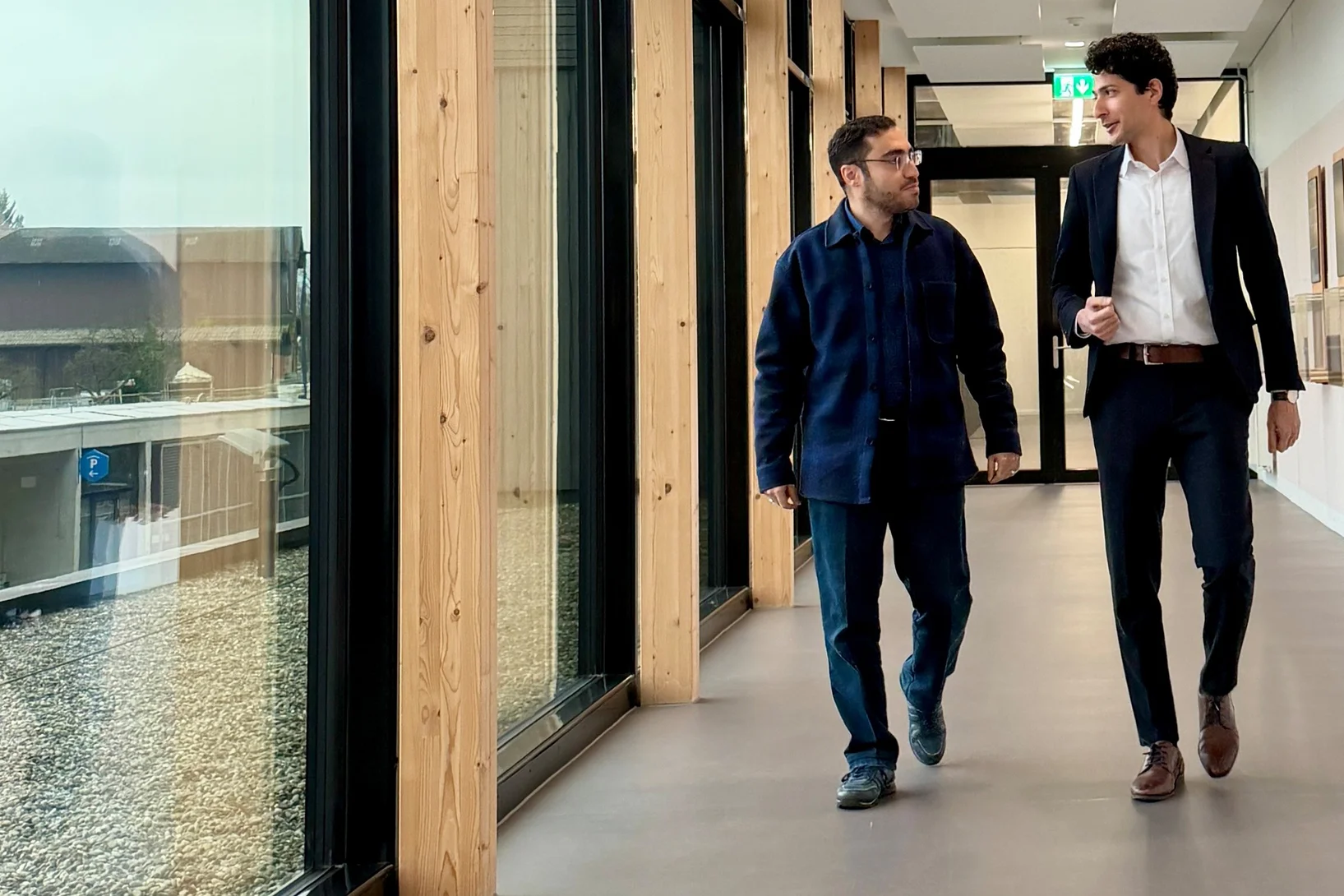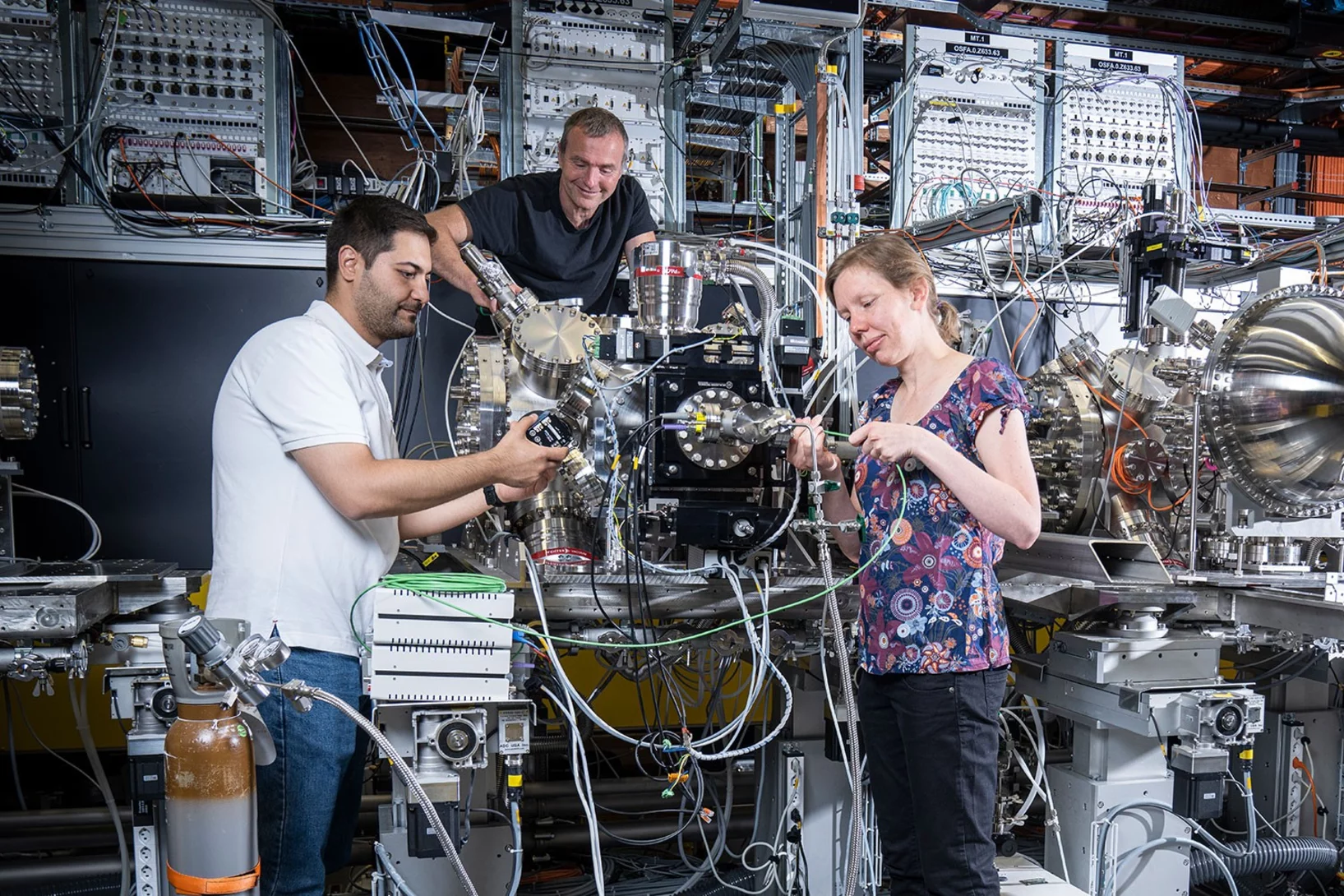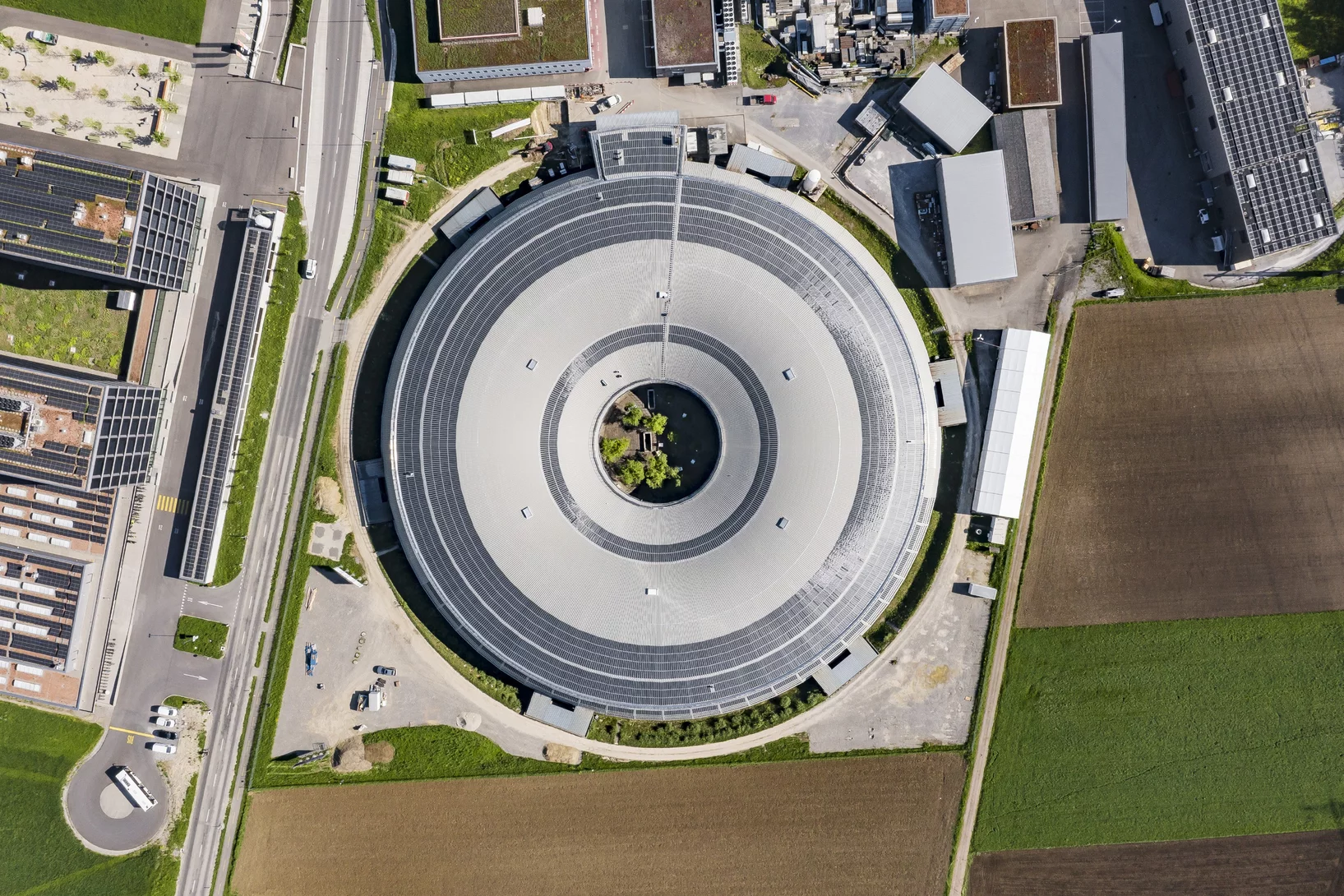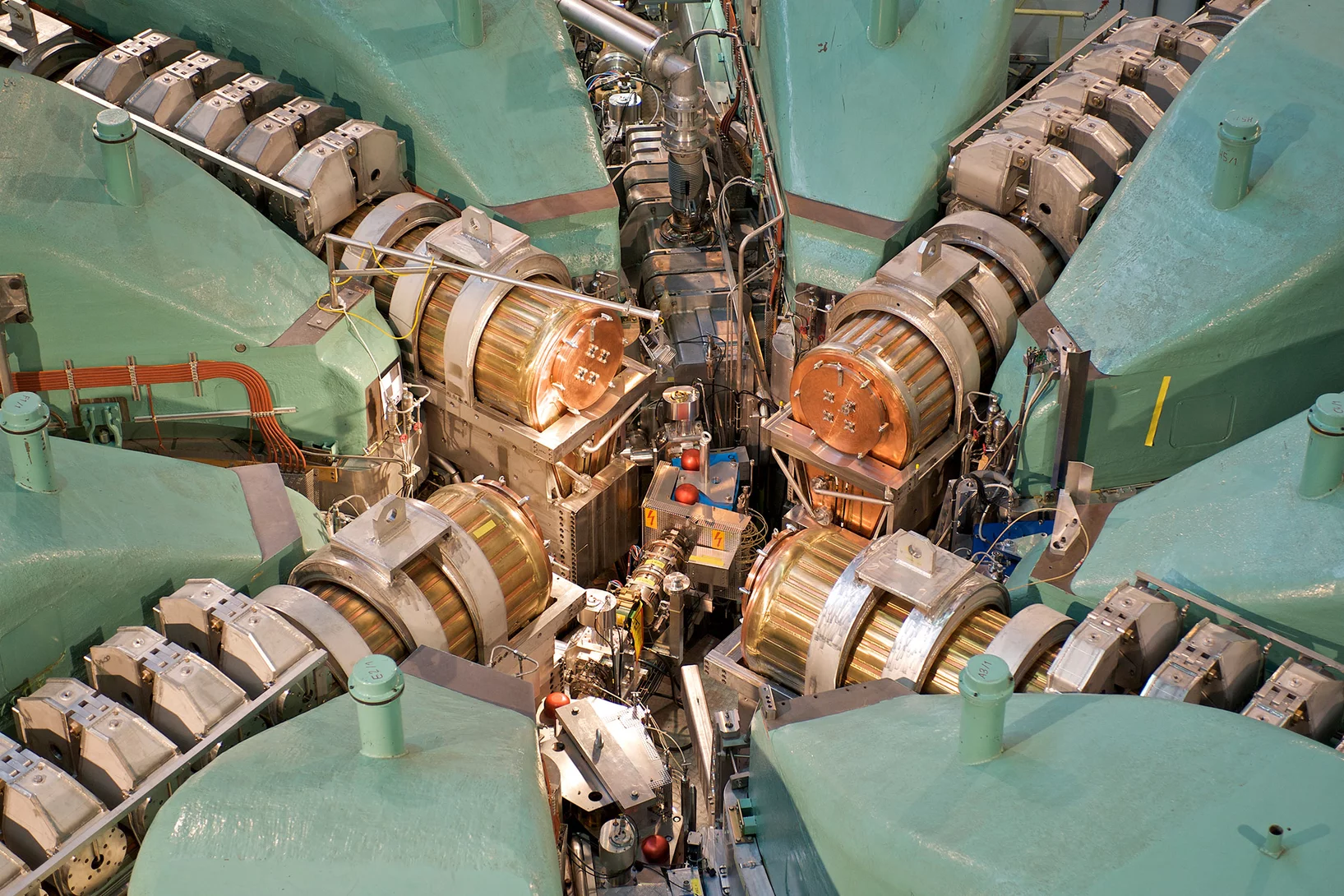Das PSI bietet mit seiner weltweit einmaligen Forschungsinfrastruktur einzigartige Möglichkeiten für die nationale und internationale Spitzenforschung.
Die Forschungsschwerpunkte des PSI
Aktuelle Highlights aus unserer Forschung
PSI Founder Fellowship für KI-Plattform und Festkörperbatterien
Die beiden PSI-Forscher Mohsen Sadr und Mohammadhossein Montazerian erhalten für ihre Geschäftsideen finanzielle Förderung sowie Beratung durch das Technologietransfer-Team des PSI.
Wichtige Förderung für die Myonenforschung
Das PSI erhält einen NCCR: Mit dem Projekt «Muoniverse» wird die Forschung an den Strahllinien für Elementarteilchen namens Myonen weiter ausgebaut – an der weltweit führenden Anlage für Myonenstrahlen.
Sarajevos Smog-Ursachen identifiziert
Kohle, Holz und Küchenluft sind die hauptsächlichen Quellen des starken Smogs in der Hauptstadt von Bosnien-Herzegowina. Dies ist das Ergebnis einer umfassenden mobilen Messkampagne von PSI-Forschenden.
Möchten Sie unsere Anlagen für Ihre Forschung nutzen?
Erfahren Sie mehr über unsere Grossforschungsanlagen und weiteren Forschungseinrichtungen.
PSI Center & Labs
Unsere Forschungs- und Servicezentren betreiben international anerkannte Spitzenforschung in den Natur- und Ingenieurwissenschaften und stellen der Wissenschaft wie auch der Industrie hochkomplexe Grossforschungsanlagen für eigene Forschungsvorhaben zur Verfügung.
Scientific Highlights aus unseren Centren
Presentation Prize 2026 (Doktorandentag, Institute of Pharmaceutical Sciences, ETH Zurich)
Benjamin Hunkeler, PhD student in the “Nuclide Chemistry Group” received the price for the best oral presentation
Best Presentation Award 2025 (SwyMIC Day 2025 in Lausanne)
Jerome Schmid, PhD student in the “Nuclide Chemistry Group” received the price for the best oral presentation at the SwyMIC Day 2025 in Lausanne
Room-Temperature Magnetic Skyrmions and Intrinsic Anomalous Hall Effect in a Nodal-Line Kagomé Ferromagnet MnRhP
Topological magnetic semimetals with kagomé lattices have attracted significant attention due to their nontrivial electronic band structures and pronounced electromagnetic responses. The search for kagomé-lattice topological semimetals exhibiting magnetic ordering above room temperature is essential ...












